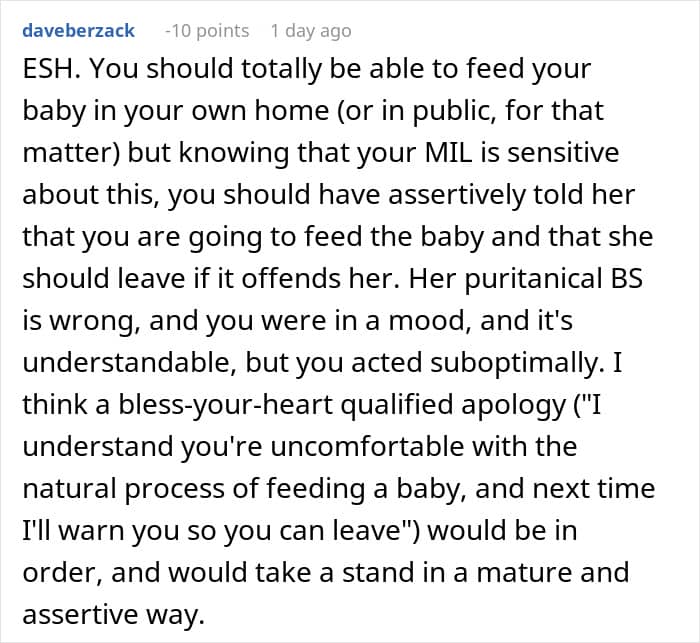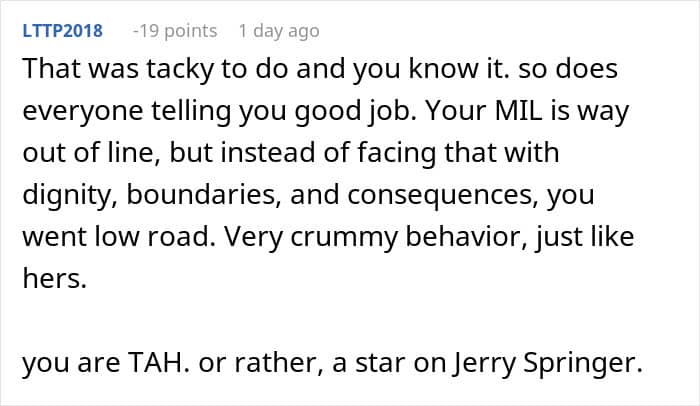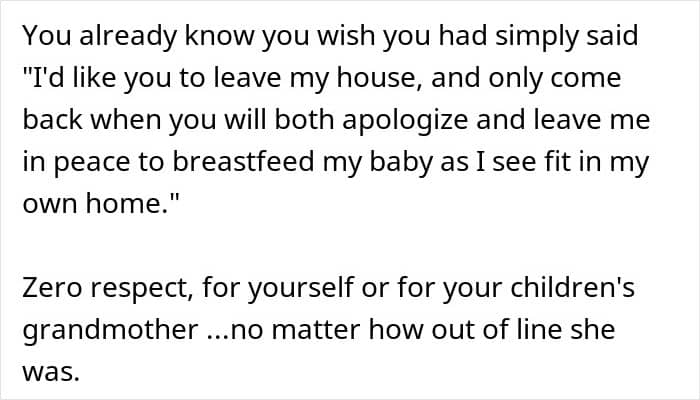While breastfeeding is considered the best option for mother and baby, women still face judgemental comments when they’re doing it in front of others. Usually, they have to do it because their child is hungry and they happen to be in public, not because they particularly enjoy it. However, this still doesn’t sink in for some people, and they continue to offer unsolicited remarks to mothers whenever they nurse in front of them.
Like this woman who told her son’s wife not to breastfeed near her in her own home. The tired new mom couldn’t be bothered to come up with an adequate answer to her comment, so she did something entirely unexpected that made jaws drop.
Scroll down to find the full story and conversation with lactation consultant at Milk Guide Jacque Ordner, international board-certified lactation consultant Mindy Cockeram, and international board-certified lactation consultant fromMother Nurture Maternity, Leslie Owens, who kindly agreed to talk with us more about the stigma surrounding breastfeeding.
RELATED:Women breastfeed in public simply because their baby is hungry and they happen to be out and about

However, some still think it’s because of some hidden sexual agenda, like this MIL, who told her DIL not to breastfeed in front of her
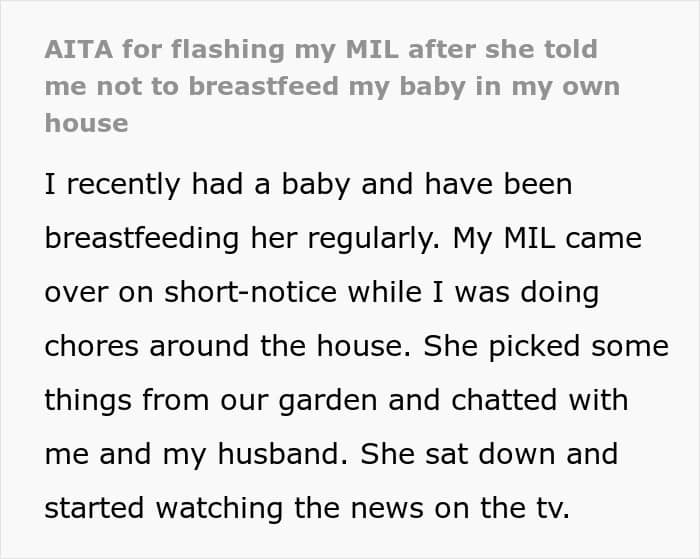
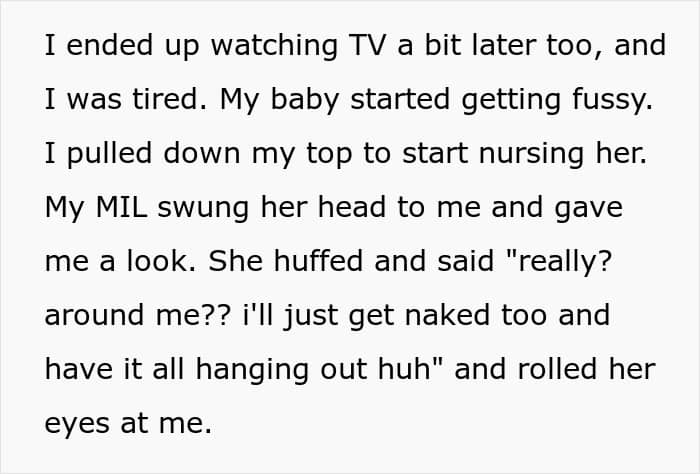
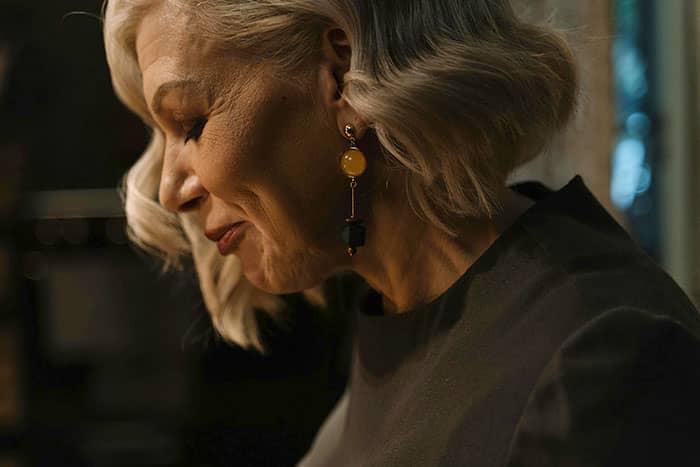
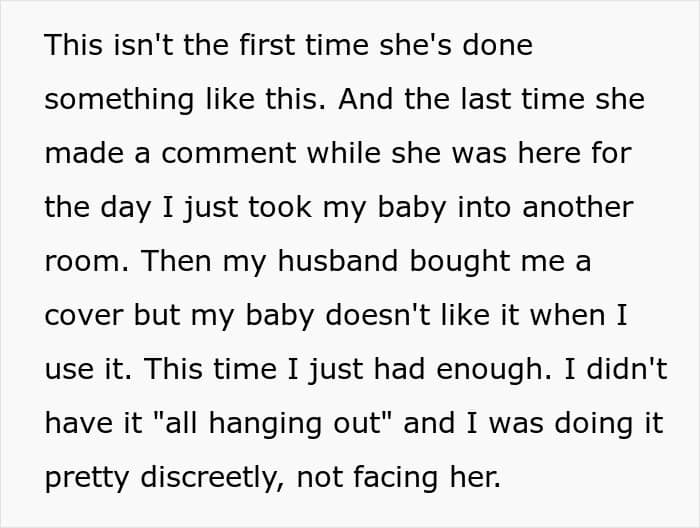
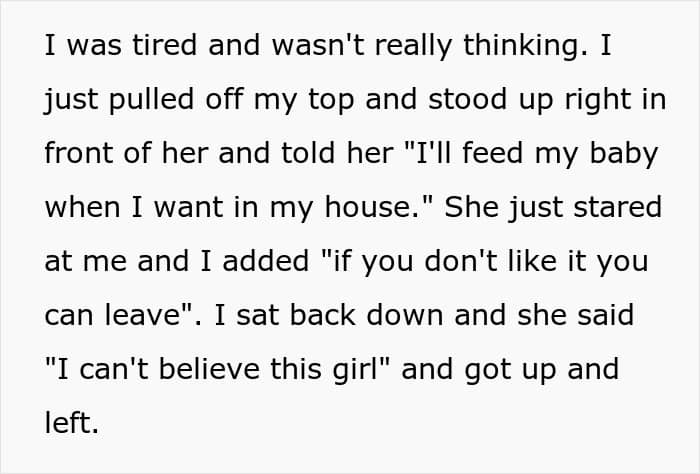

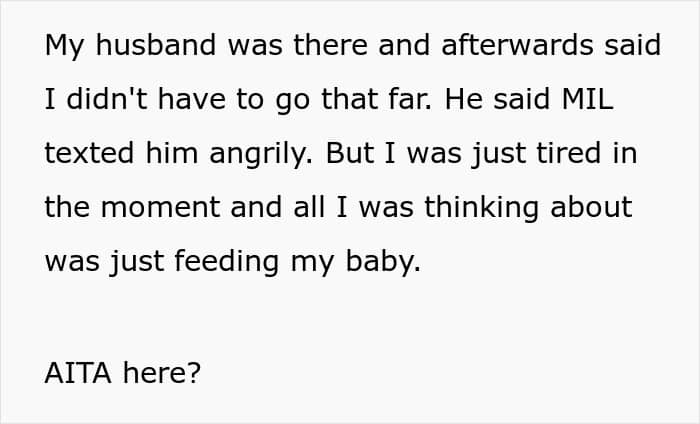
“Women breastfeed in public because their babies need to eat, and that’s what breasts were made for!”
No mother has to explain herself why she’s breastfeeding in front of others. However, for those who are slower in understanding the reasons, international board-certified lactation consultant fromMother Nurture Maternity, Leslie Owens, gives one of them. “Women breastfeed in public because their babies need to eat, and that’s what breasts were made for!”
“Why does anyone eat in public? Women breastfeed in public because it is convenient,” adds international board-certified lactation consultant Mindy Cockeram. “Babies are not just hungry and demanding in private homes. If you are leaving the house with a baby, they may need feeding. If you are exclusively breastfeeding, you have little choice,” she says.
“Babies require frequent feedings to help them meet their caloric intake needs. Feeding on demand (whenever baby shows hunger cues) is the recommended way to feed all infants, whether breast milk or formula fed. In short, breastfeeding can be hard enough without adding extra expectations related to feeding in public. Babies should be fed when they are hungry. Adults should be capable of prioritizing the need for babies to be fed above any uneasiness they may feel about breastfeeding in public,” explains lactation consultant at Milk Guide Jacque Ordner.
The hesitance to breastfeed in public comes from onlookers who make negative comments about it. The people who offer such unsolicited comments usually do so because they struggle to view breasts as more than just sexual objects that should be bared in private. “The breast has been sexualized, and s*x is a taboo subject for many. In the West/USA, baring a breast is still considered sexual and therefore should be bared in private. Of course, many Western countries (like France) do not attach a sexual stigma to breasts and often go topless. But sadly, breasts are still considered sexual,” says Cockeram.
“Remind people that breastfeeding in public is legal in all 50 states”
As mentioned earlier, no woman has to explain why she’s feeding in public or feel ashamed about it. But because our society isn’t perfect, we still have to work to make this our reality by normalizing it. Ordner suggests doing this through education for both parents and healthcare providers.
“When quality, evidence-based breastfeeding support and education are available and accessible for childbearing families, the impact is huge! Thankfully, we’re seeing advancements in this area with greater insurance coverage for lactation care from IBCLCs (International Board Certified Lactation Consultants). Public education and awareness campaigns that focus on the benefits of breastfeeding for mothers and babies have also been shown to move the needle toward normalization,” she shares.
“Sadly, many healthcare providers are grossly uneducated or misinformed about how breastfeeding works, its benefits, and the challenges that breastfeeding families face. A big step toward normalization would include better training and education for healthcare providers across the board. Workplace policies that support breastfeeding families are also sorely needed to move toward normalization.”
“Bringing imagery of women breastfeeding in the media, in magazines, on television, and on social media—as well as in real life—will begin to normalize it as time passes on,” adds Owens.
All of these goals will take a lot of time to achieve, so until they come true, women can find healthy ways to cope with negative breastfeeding comments. “Understand that they are not the problem – society is. Stand their ground, and unapologetically be their baby anywhere that they need or want to. Practice some generic responses to have on hand in case anyone bothers them,” suggests Owens.
Meanwhile, Cockeram advises, “Remind people that breastfeeding in public is legal in all 50 states, whereas sexual harassment is not. If people can eat in public, why shouldn’t a baby be able to do the same?”
Lastly, Ordner also recommends having a healthy support system. “Our digital age makes it possible for mothers to find and connect with one another across the globe. I encourage mothers to start building their support network as soon as they find out they are pregnant. Knowing you have a community to run to is powerful! Ideally, women also have other supportive people in their lives, such as partners, family members, and friends.”
Some commenters supported the new mom
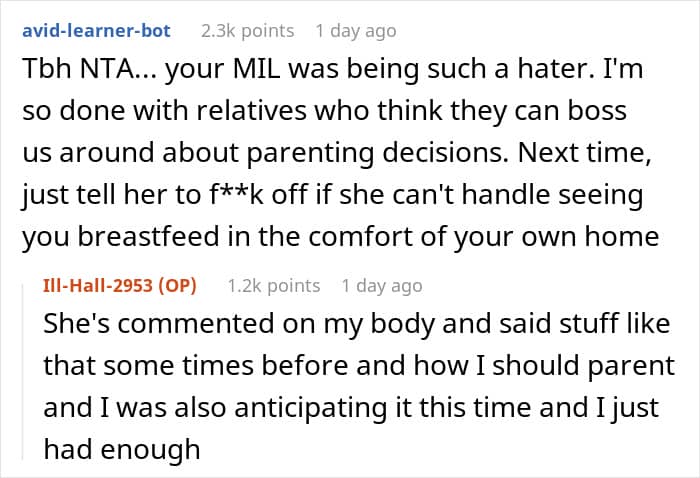


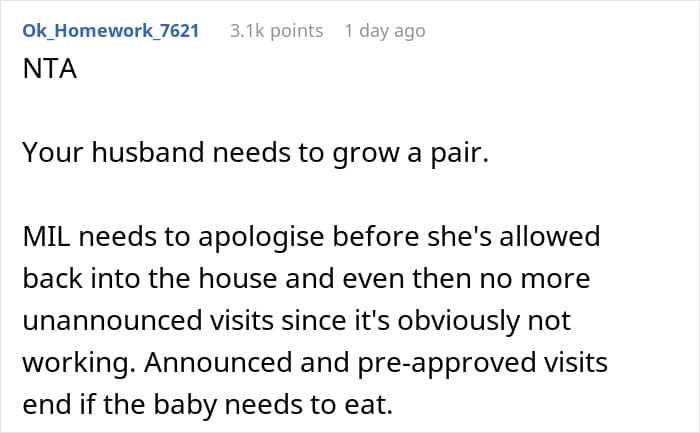

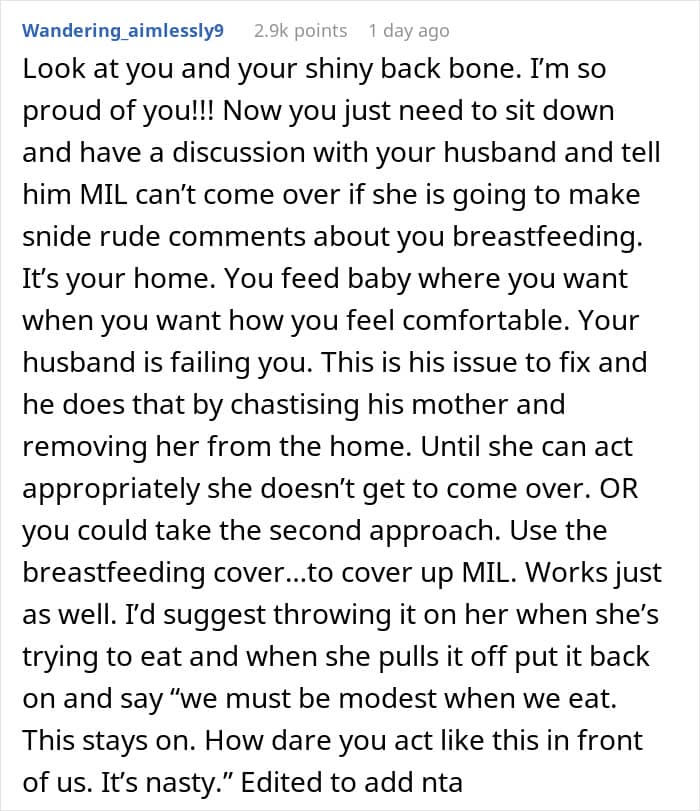


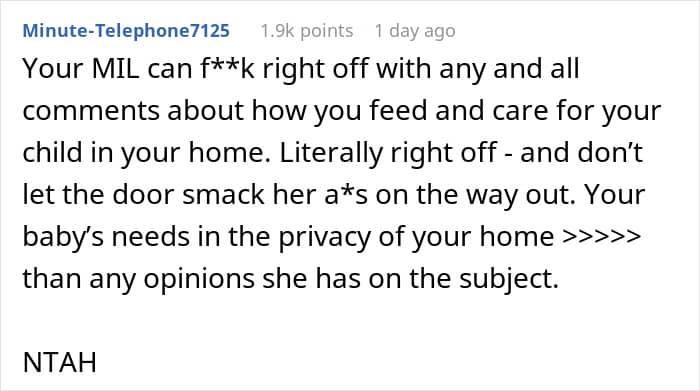
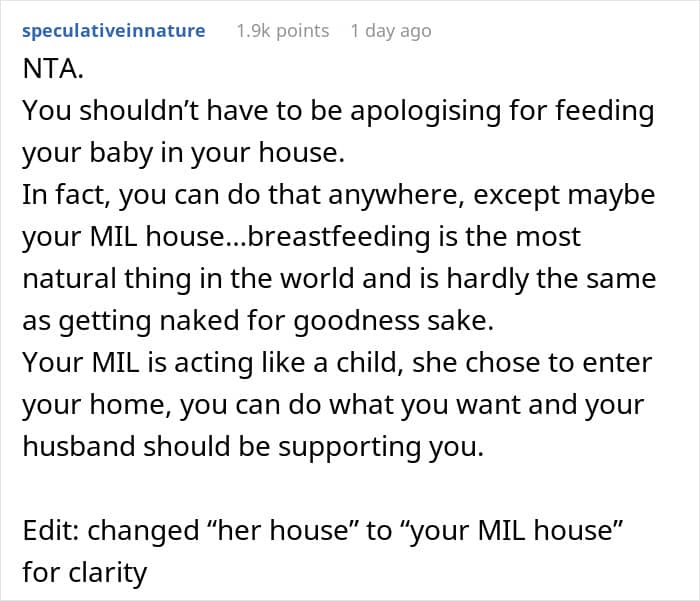
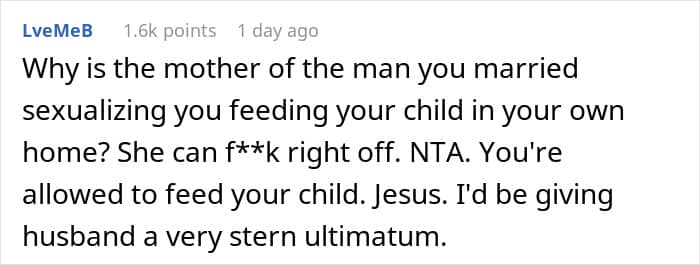
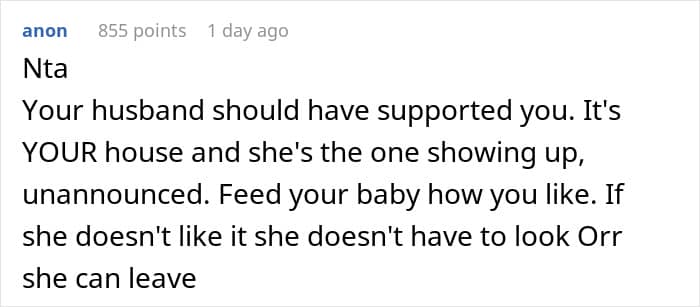
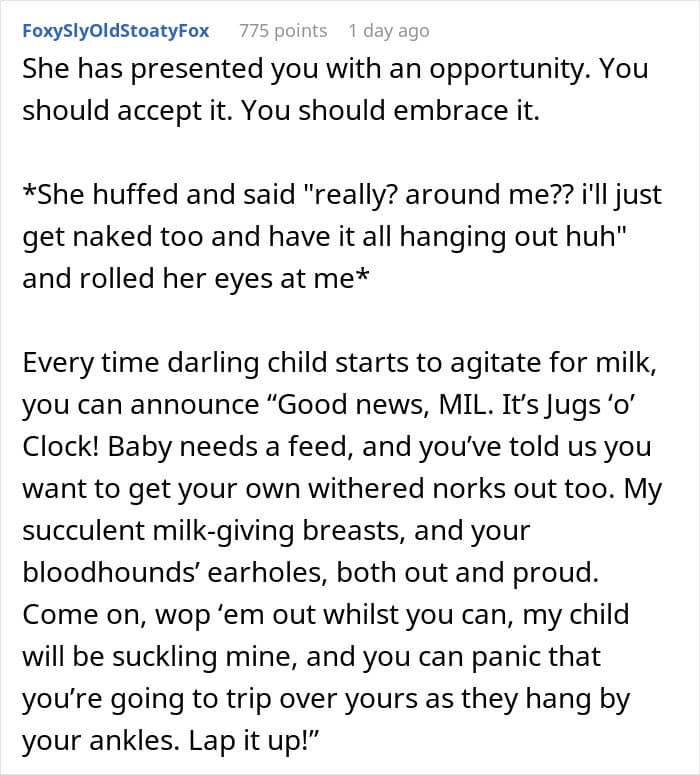
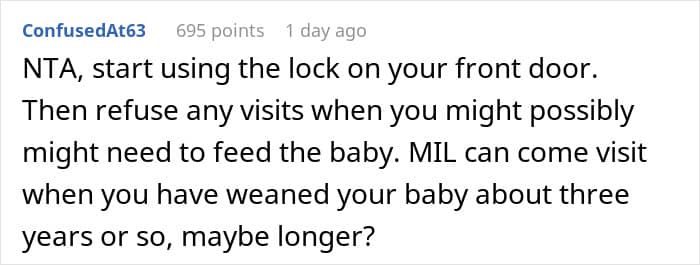


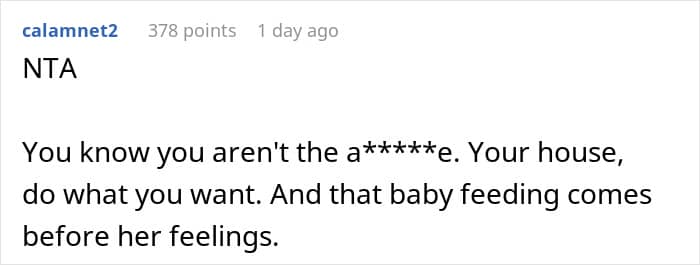

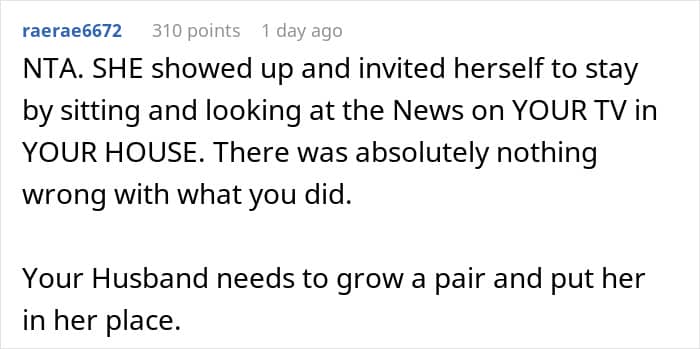
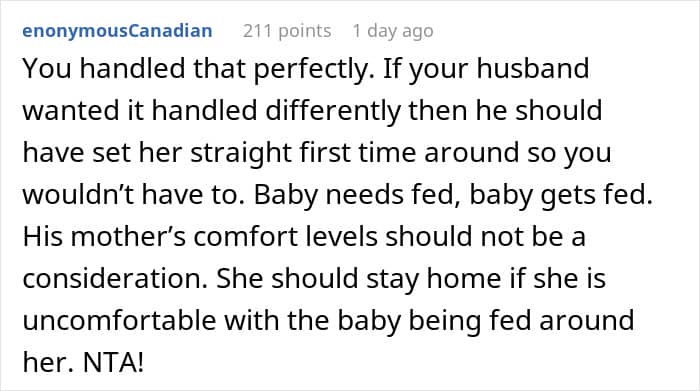
While some thought she was acting childish
